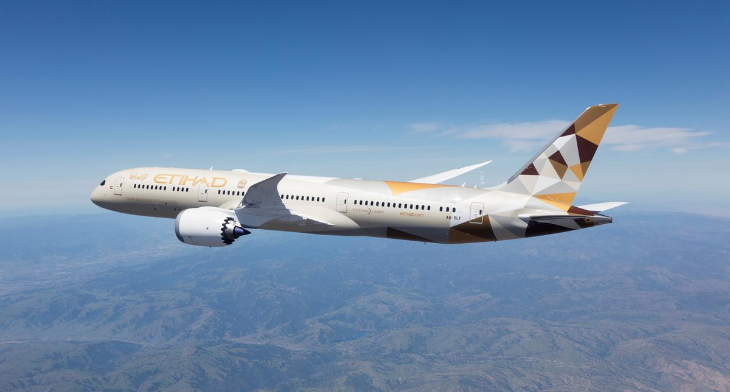
Etihad Airways has released details of its half-year 2020 performance, which has seen a strong start largely wiped out by the effects of COVID-19.
The airline carried 3.5 million passengers in H1 (H1 2019: 8.2 million), a reduction of 58% from the same period the previous year. Average seat load factor was 71%. Core operating loss for this period increased by US$172 million to $758 million (H1 2019: $586 million), driven by a 38% drop in revenues, which stood at $ 1.7 billion (H1 2019: $2.7 billion).
However, the airline saw a significant decrease in Q2 operating revenues following COVID-19 flight suspensions, with 70% of its fleet grounded. This period registered a 99% drop in passenger numbers and a 95% drop in ASK compared to Q2 2019. Seat load factor for this period was 16%, mainly driven by the operation of special (repatriation) flights, and the resumption of a limited network of transfer services via Abu Dhabi in early June.
Tony Douglas, Group Chief Executive Officer, Etihad Aviation Group, said: “While we have revised our outlook for the rest of 2020 based on current realities, we remain optimistic that as international borders re-open, we will increase our flying and carry more guests securely and with greater peace of mind, supported by the Etihad Wellness programme and our new Wellness Ambassadors. By September, we aim to increase our worldwide flights to half our pre-COVID-19 capacity.”
Etihad operated up to 40 of its fleet of 97 passenger aircraft in Q2, including Boeing 787 Dreamliners, 777-300ERs, and Airbus A320 family aircraft as belly-hold cargo freighters to complement Etihad Cargo’s operational fleet of six 777-200F freighters. Between 25 March and 15 June, over 640 special passenger flights were operated to 45 online and offline destinations, using the passenger cabins of these aircraft to fly foreign nationals out of the UAE, and to bring UAE nationals back home.
“The clear focus moving forward is on adapting our transformation plan to reflect new market conditions, but without changing our overall objectives or sustainability goals and commitments. We anticipate some continued volatility for a while to come, as the world strives to put an end to COVID-19, and as testing methodologies and protocols evolve to become the new norm.
“We know that markets are certain to rebound and the world will rediscover the wonder of flying once more. When it does, our guests will value the Etihad Wellness proposition more than ever, and we are best positioned to deliver the security, assurance, and best-in-class experience they have come to expect from Etihad as a true full-service airline,” concludes Douglas.





